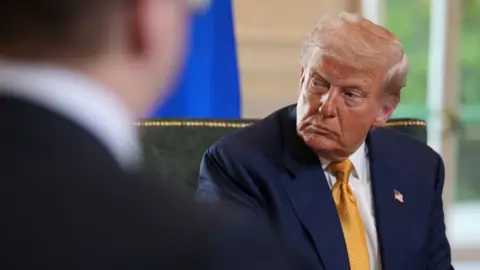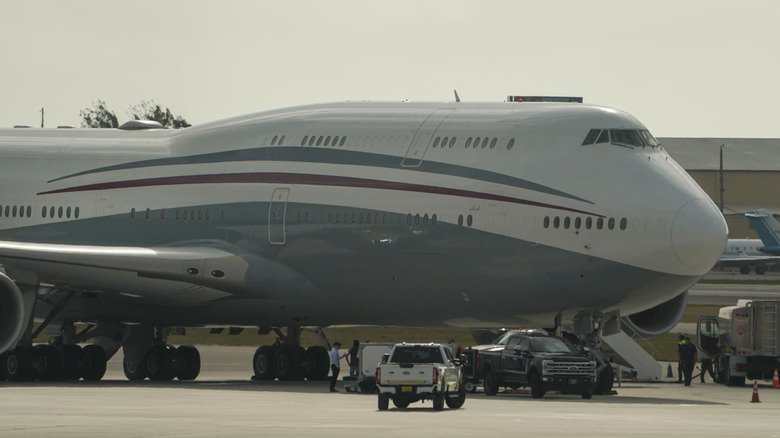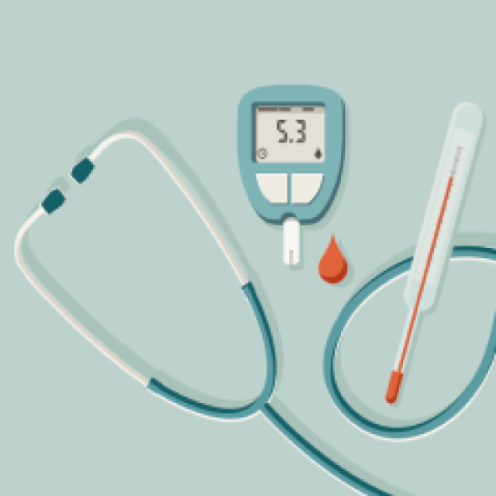BBC News

 Getty Images
Getty ImagesThe US and EU have struck what is being billed as the largest trade deal in history, after talks in Scotland.
It actually resembles the framework for an agreement rather than a full trade deal, with details still unclear.
But the headline figures announced by President Donald Trump and EU chief Ursula von der Leyen do offer clues about which sectors and groups could be hit hardest or have most to gain.
Trump – winner
After promising new trade deals with dozens of countries, Trump has just landed the biggest of them all.
It looks to most commentators that the EU has given up more, with instant analysis by Capital Economics suggesting a 0.5% knock to GDP.
There will also be tens of billions of dollars pouring into US coffers in import taxes.
But the glowing headlines for Trump may not last long if a slew of economic data due later this week show that his radical reshaping of the US economy is backfiring.
Figures on inflation, jobs, growth and consumer confidence will give a clearer picture on whether Trump’s tariffs are delivering pain or gain.
US consumers – loser
Ordinary Americans are already aggrieved at the increased cost of living and this deal could add to the burden by hiking prices on EU goods.
While not as steep as it could have been, the hurdle represented by a 15% tariff rate is still significant, and it is far more pronounced than the obstacles that existed before Trump returned to office.
Tariffs are taxes charged on goods bought from other countries. Typically, they are a percentage of a product’s value. So, a 15% tariff means that a $100 product imported to the US from the EU will have a $15 dollar tax added on top – taking the total cost to the importer to $115.
Companies who bring foreign goods into the US have to pay the tax to the government, and they often pass some or all of the extra cost on to customers.
Markets – winner
Stock markets in Asia and Europe rose on Monday after news emerged of the deal framework.
Under the framework, the US will levy a 15% tariff on goods imported from the EU. While this rate is significant, it is less than what it could have been and at least offers certainty for investors.
The agreement is “clearly market-friendly, and should put further upside potential into the euro”, Chris Weston at Pepperstone, an Australian broker, told AFP.
European solidarity – loser
The deal will need to be signed off by all 27 members of the EU, each of which have differing interests and levels of reliance on the export of goods to the US.
While some members have given the agreement a cautious welcome, others have been critical – hinting at divisions within the bloc, which is also trying to respond to other crises such as the ongoing war in Ukraine.
French Prime Minister Francois Bayrou commented: “It is a dark day when an alliance of free peoples, brought together to affirm their common values and to defend their common interests, resigns itself to submission.”
He was joined by at least two other French government ministers as well as Viktor Orban, the Hungarian leader, who said that Trump “ate von der Leyen for breakfast”.
Carmakers in Germany – loser
The tariff faced by importers bringing EU cars to the US has been nearly halved, from the rate of 27.5% that was imposed by Trump in April to a new rate of 15%.
Cars are one of the EU’s top exports to the US. And as the largest manufacturer of cars in the EU – thanks to VW, Mercedes and BMW – Germany will have been watching closely.
Its leader, Friedrich Merz, has welcomed the new pact, while admitting that he would have welcomed a “further easing of transatlantic trade”.
That downbeat sentiment was echoed by the German carmaking trade body, the VDA, which warned that even a rate of 15% would “cost the German automotive industry billions annually”.
Carmakers in the US – winner
Trump is trying to boost US vehicle production. American carmakers received a boost when they learned that the EU was dropping its own tariff on US-made cars from 10% to 2.5%. Theoretically that could result in more American cars being bought in Europe.
That could be good for US sales overseas, but the pact is not all good news when it comes to domestic sales. That is down to the complex way that American cars are put together.
Many of them are actually assembled abroad – in Canada and Mexico – and Trump subjects them to a tariff of 25% when they are brought into the US. That compares with a lower tariff rate of 15% on EU vehicles. So US car makers may now fear being undercut by European manufacturers.
EU pharmaceuticals – loser
There is confusion around the tariff rate that will be levied on European-made drugs being bought in the US. The EU wants drugs to be subject to the lowest rate possible, to benefit sales.
Trump said pharmaceuticals were not covered by the deal announced on Sunday, under which the rate on a number of products was lowered to 15%. But von der Leyen said they were included, and a White House source confirmed the same to the BBC.
Either scenario will represent disappointment for European pharma, which initially hoped for a total tariffs exemption. The industry currently enjoys high exposure to the US marketplace thanks to products like Ozempic, a star type-2 diabetes drug made in Denmark.
This has been highlighted in Ireland, where opposition parties have pointed out the importance of the industry and criticised the damaging effect of uncertainty.
US energy – winner
Trump said the EU will purchase $750bn (£558bn, €638bn) in US energy, in addition to increasing overall investment in the US by $600bn.
“We will replace Russian gas and oil with significant purchases of US LNG [liquified natural gas], oil and nuclear fuels,” said Von der Leyen.
This will deepen links between European energy security and the US at a time when it has been pivoting away from importing Russian gas since its full-scale invasion of Ukraine.
Aviation industry in EU and US – winner
Von der Leyen said that some “strategic products” will not attract any tariffs, including aircraft and plane parts, certain chemicals and some agricultural products.
That means firms making components for aeroplanes will have friction-free trade between the huge trading blocs.
She added that the EU still hoped to get more “zero-for-zero” agreements, notably for wines and spirits, in the coming days.







